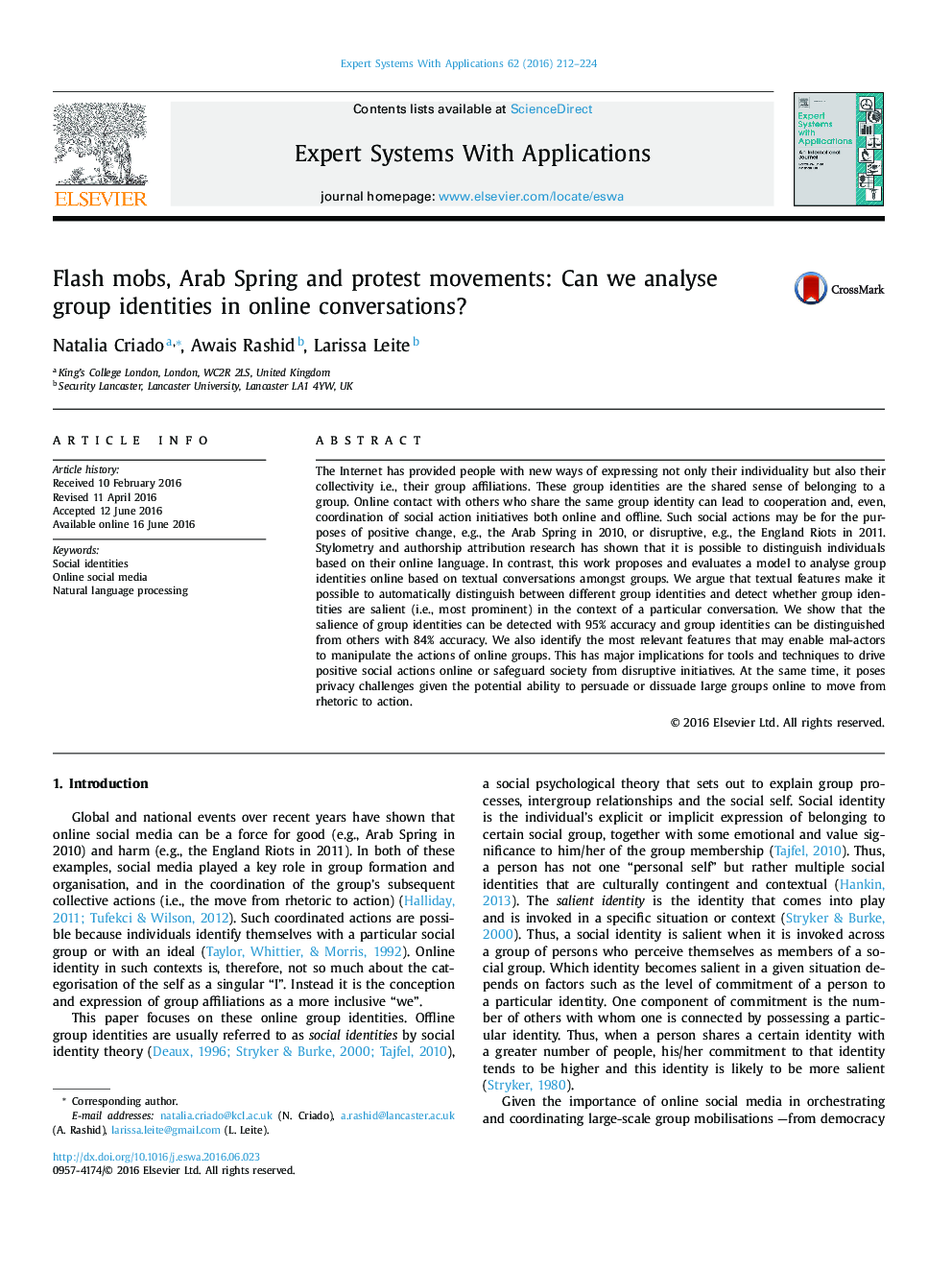| کد مقاله | کد نشریه | سال انتشار | مقاله انگلیسی | نسخه تمام متن |
|---|---|---|---|---|
| 383552 | 660826 | 2016 | 13 صفحه PDF | دانلود رایگان |
• We present a model to analyse online group identities on textual conversations.
• Our model applies data mining, NLP and sylometric techniques.
• Our model detects the salience of group identities with 95% accuracy.
• Our model is able to distinguish group identities from others with 84% accuracy.
• We identify features that may enable mal-actors to manipulate online groups.
The Internet has provided people with new ways of expressing not only their individuality but also their collectivity i.e., their group affiliations. These group identities are the shared sense of belonging to a group. Online contact with others who share the same group identity can lead to cooperation and, even, coordination of social action initiatives both online and offline. Such social actions may be for the purposes of positive change, e.g., the Arab Spring in 2010, or disruptive, e.g., the England Riots in 2011. Stylometry and authorship attribution research has shown that it is possible to distinguish individuals based on their online language. In contrast, this work proposes and evaluates a model to analyse group identities online based on textual conversations amongst groups. We argue that textual features make it possible to automatically distinguish between different group identities and detect whether group identities are salient (i.e., most prominent) in the context of a particular conversation. We show that the salience of group identities can be detected with 95% accuracy and group identities can be distinguished from others with 84% accuracy. We also identify the most relevant features that may enable mal-actors to manipulate the actions of online groups. This has major implications for tools and techniques to drive positive social actions online or safeguard society from disruptive initiatives. At the same time, it poses privacy challenges given the potential ability to persuade or dissuade large groups online to move from rhetoric to action.
Journal: Expert Systems with Applications - Volume 62, 15 November 2016, Pages 212–224
